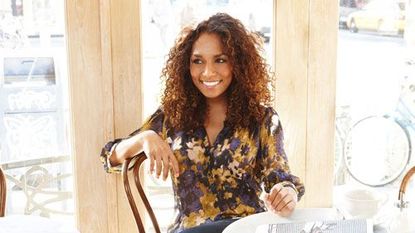
The flight to Bangkok's Don Muang Airport felt far longer than I'd imagined. It was Christmas break during my freshman year at the University of Hawaii, and I was 18, anxious, and alone. After high school graduation, many of my classmates were throwing big graduation parties and buying new cars. Those kids went looking for good times and great memories, but I was desperately searching for one thing only: a chance to be in the right body for the first time in my entire life. I had traveled more than 6,000 miles to have gender reassignment surgery — a sex change.
At the arrival gate, I was greeted by two smiling nurses who assured me that everything was going to be OK. But I already knew that. I was the one who had lived with the sheer torment of inhabiting a body that never matched who I was inside, the one devastated by the quirk of fate that had consigned me to a life of masked misery. By the time I set foot in Thailand, I knew there could be nothing worse than living another day with a penis dangling between my legs.
Counting backward as the anesthesia took hold, I surrendered to what I believed with certainty would be a better future. And then, just like that, I was awake again. The sound of Muslim prayers rang through the air, echoing in my brightly lit hospital room. Even though I'd spent the last three hours on the operating table — I could already feel the first tinges of pain in my lower body — I felt completely reborn. Though I had been born a boy to my native Hawaiian mother and African-American father, I would never be a man. It was the birth of my choosing this time. And now it was official: Charles had died so that Janet could live.
Once, when I was 5-years-old, a little girl who lived next door to my grandmother dared me to put on a muumuu and run across a nearby parking lot. So I did. I threw it on, hiked it up in one hand, and ran like hell. It felt amazing to be in a dress. But suddenly my grandmother appeared, a look of horror on her face. I knew immediately that I had crossed some kind of line. After yelling at me, she banished me to our patio, where I played quietly with my sumo action figures for a while. I loved them because they had long hair, and they were the only "dolls" OK for me, a boy, to play with.
It didn't take very long before the social cues got louder and clearer. My parents started scolding me over the way I walked and held my hands. I learned to hide aspects of my personality. Playing with girls was fine, for example, but playing with their Barbies was something I could do only behind closed doors. After my parents split, my mom said my younger brother and I needed a strong male role model and sent us to live with our dad in Oakland, California. Stern and critical, my father couldn't accept how feminine and dainty I was in comparison to my rough-and-tumble brother. "Get outside and play!" he would bark. One time, I pretended to be a girl named Keisha — I wasn't dressed like a girl, but in my baggy jeans and colorful top and with my longish hair, I easily passed for one. A boy who didn't know me told my cousin Mechelle that he thought I was pretty. "Isn't she?" Mechelle said, playing along. She. It spoke to my soul.
It was my father who first dared to ask the question: You're not gay, are you? I was 8 and wasn't even sure what that meant, but I knew from his tone that it was unacceptable. "No!" I shouted defensively.
When I was 12, my brother and I moved back to Honolulu to live with our mother. Hawaii felt like another universe, and reflecting on it, I am struck by how much more open and accepting it was. The searing social issues there had more to do with locals versus "foreigners" (aka "haoles") than with kids like me. In fact, I even found other boys like me there, and I eagerly gravitated to them. Together we envied girls, their ability to express their femininity without shame; I admired the way their bodies bloomed and rounded out. Not mine. I was beginning to loathe my shapeless body, the straight lines and hard angles.
Stay In The Know
Marie Claire email subscribers get intel on fashion and beauty trends, hot-off-the-press celebrity news, and more. Sign up here.
During recess one day, I met Wendi. A year older than me, she was part of a small, tight-knit group of transsexuals who went around town wearing makeup and skirts hitched up to the thigh. They congregated outside our school at night, where they practiced the dance routines of Mariah Carey and Toni Braxton. They were a revelation, and I was emboldened just watching them. Wendi lived with her grandparents, who supported her and allowed her to wear girls' clothes and makeup, a freedom I envied. I spent hours in her room, playing with her cosmetics, plucking my eyebrows, trying on bras. The more time I spent with Wendi, the more comfortable I grew expressing myself as a female. By the end of my freshman year in high school, I was regularly wearing women's clothes to school.
But the fallout was swift and merciless. Fag! I can see your balls! The insults reverberated off the lockers and echoed down the school hallways. Though I was never physically threatened and never feared for my safety, the harassment was relentless. Not a moment went by that wasn't accompanied by a taunt, a slur, a cruel reminder that my classmates could not, would not, see me as I saw myself. "You're making people uncomfortable," one vice principal said while he looked me over with disdain. Soon he gave me an ultimatum: Wear a skirt to school again and get sent home for the day. But it was too late to turn back. I liked how I looked as a young woman, even though it meant exposing myself to ridicule. After that, I held my head high as I strode through the hallways in my miniskirts, past the haters who called me a freak, past the teachers who looked on disapprovingly, and past the vice principal who routinely sent me home. By the end of sophomore year, my mother, who condoned my wardrobe, had had enough. Together, we decided it was time to transfer schools.
Though most of the students at my new school had heard whispers about my past, it was a much more open environment. There was even a Teen Center staffed with social workers who counseled gay kids. One of them joined me as I introduced myself to teachers as Janet and helped them get comfortable with calling me that name instead of the one listed on the attendance sheets.
There are key moments in a person's life when you just know your destiny is about to change. For me, this moment came when Wendi, whom I remained friends with despite being in different schools, started taking female hormone pills. When she graduated to injections a few months later, she sold me her pills for $1 a pop. The timing was divine, as I'd already begun to detect a hint of an Adam's apple on my throat. The changes in my 15-year-old body horrified me. Sometimes while showering, my thoughts got dark: What if I just cut this thing off? Wendi's pills were my savior. For three months, I took estrogen and watched my body's slow metamorphosis: softer skin, budding breasts, a fuller face.
But I knew that taking them without the supervision of a doctor was risky. I needed someone to monitor my progress. That's when I finally confessed to my mom what I'd been doing. A single, working mother, she didn't have the luxury or will to micromanage my life and allowed me to do what I wanted so long as I continued making honor roll. That was our unspoken deal. But the medical changes were different — she recognized that my desperation to be a woman was not just teen angst or rebellion; it was a matter of life or death. "If that's what you want," she said, looking me straight in the eye, "we're going to do it the right way." So she signed off on a local endocrinologist's regimen of treatments, which involved weekly hormone shots in the butt and daily estrogen pills. For the first time, I could visualize heading off to college as a woman, pursuing a career as a woman. No more dress-up, no more pretending.
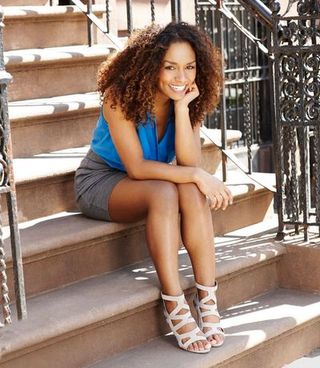
While on these hormones, I lost my virginity at age 17 to a guy I met while I was working at a boutique. He knew my background but said he didn't care. Even though I trusted him, I couldn't relax and insisted on keeping the lights off. I was a woman with the wrong parts, and tried to cover myself up. After that awkward encounter, I knew that I could never share myself that way again. If I was ever going to finally feel at ease with my body, I had to have a total sex change.
I knew a woman, a friend of a friend, who had gone to Bangkok for gender reassignment surgery. She told me that it cost only $7,000, much cheaper than getting it done in the U.S. Though that was still an extraordinary sum of money for me at the time, I'd have paid any amount — nothing was going to keep me from my destiny. By year's end, I'd saved up enough to purchase my ticket to Thailand.
I spent 10 days in the hospital recovery room, doped up on pain relievers. During the operation, my surgeon had masterfully refashioned the tissue and nerves from my male organs to construct a vagina. Finally, every part of me made perfect sense. I didn't have to "tuck" anymore. Were I to change right next to you in a locker room, you wouldn't think twice about my body, wouldn't doubt for a second that you were in the company of a woman. A doctor signed off on my gender reassignment papers, enabling me to legally change the sex on my American birth certificate to female. With my male organ gone, I continued a reduced hormone therapy regimen, which was ultimately phased out six months later. If there was a secret now, it was mine to keep.
Two weeks after the surgery, I was in class at the University of Hawaii, finally focusing on something other than my gender. Four years later, I left Hawaii, a beautiful, confident woman armed with a journalism degree and bound for graduate school and a career in New York City.
I was 25 minutes late and racked with nervous energy for my first date with Aaron. We'd met at a Lower East Side bar — he didn't know anything about me when he approached me — and our connection was so intense that it scared me. He was good-looking but also, as I learned dating him over the next few weeks, an open and thoughtful person. I decided that if the relationship was to go further, if we were going to be intimate, I had to tell him my truth. One night at his apartment, I took a deep breath. "There's something about my past I need to share with you," I calmly said. "I was born a boy." I felt as though the words were made of concrete, and I waited to hear them crash loudly to the floor. Aaron looked at me with obvious concern, took my hand, and asked, "Are you OK?"
We spent the rest of the night talking. Slowly, I unpacked all the secrets and shame I'd been dragging with me all these years. He was braver than I could've dreamed. We didn't make love that night, but eventually we did, and I felt safe with him. Revealing my story to Aaron was about finally embracing my authentic self. Despite all the shit — the childhood spent fearing my father's judgments, the high school bullying, all those years mourning what I thought I could never have — here I was, in a blossoming relationship with a gorgeous, astute, caring man. After 10 months of dating, we moved in together, and I've never been more fulfilled.
Aaron is among just a handful of people who know about my unbelievable adventure. I have a thriving career as a Web editor for a very popular magazine. My coworkers don't know about my past, mostly because I never wanted to be the poster child for transsexuals — pre-op, post-op, or no op. But the recent stories about kids who have killed themselves because of the secrets they were forced to keep has shifted something in me.
That's why I decided to come out in the pages of Marie Claire, why I'm writing a memoir about my journey. It used to pain me to hear my birth name, a heartbreaking insult classroom bullies would shout to get a rise out of me. But talking and writing about my experiences have helped me finally accept the past and celebrate the fact that I was once a big dreamer who happened to be born a boy named Charles. I hope my story resonates with other big dreamers, lets them know that no matter how huge, how insane, how unreasonable or unreachable your goals may seem, nothing — not even your own body — can hold you back if you are certain and fearless and, yes, even a little ballsy in your quest.
Get in touch with Janet at her site, janetmock.com.
-
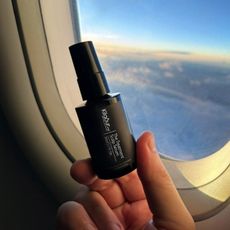 Preventative Haircare Is Trending—This Is What You Should Use
Preventative Haircare Is Trending—This Is What You Should UseSponsor Content Created With KilgourMD
By Emma Walsh Published
-
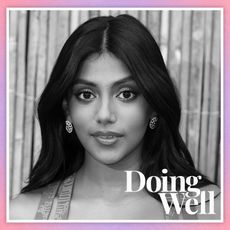 Charithra Chandran Wants You to Take Yourself on a Date
Charithra Chandran Wants You to Take Yourself on a DateThe "Bridgerton" star is ditching the dating apps.
By Gabrielle Ulubay Published
-
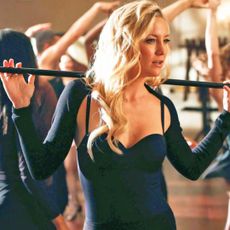 Kate Hudson Says It was “Very Dramatic” On the ‘Glee’ Set
Kate Hudson Says It was “Very Dramatic” On the ‘Glee’ Set“… when you’ve got all of those personalities and all that talent and all that youth and a lot of hormones…”
By Danielle Campoamor Published
-
 The 22 Best Vibrators, According to Sex Toy Experts
The 22 Best Vibrators, According to Sex Toy ExpertsThe best options, for every preference and price range.
By Gabrielle Ulubay Last updated
-
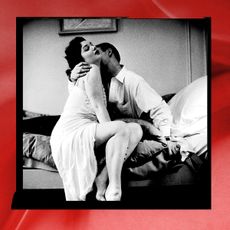 The Best Period Sex Tips, According to Sex Experts
The Best Period Sex Tips, According to Sex ExpertsWho says messy can't be sexy?
By Gabrielle Ulubay Last updated
-
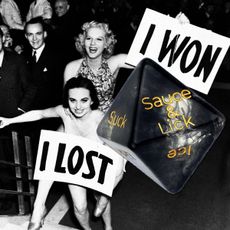 The 20 Best Sex Games for Couples in 2023
The 20 Best Sex Games for Couples in 2023Who said game nights need to be wholesome?
By Gabrielle Ulubay Last updated
-
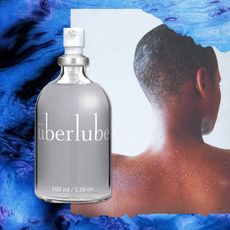 The 14 Best Lubes for Every Need
The 14 Best Lubes for Every NeedGood sex should always go smoothly.
By Gabrielle Ulubay Last updated
-
 COVID Forced My Polyamorous Marriage to Become Monogamous
COVID Forced My Polyamorous Marriage to Become MonogamousFor Melanie LaForce, pandemic-induced social distancing guidelines meant she could no longer see men outside of her marriage. But monogamy didn't just change her relationship with her husband—it changed her relationship with herself.
By Melanie LaForce Published
-
 100 Sex Songs That Won't Make You Cringe
100 Sex Songs That Won't Make You CringeDim the lights and hit play on this sex songs — the perfect playlist of songs to have sex to.
By The Editors Published
-
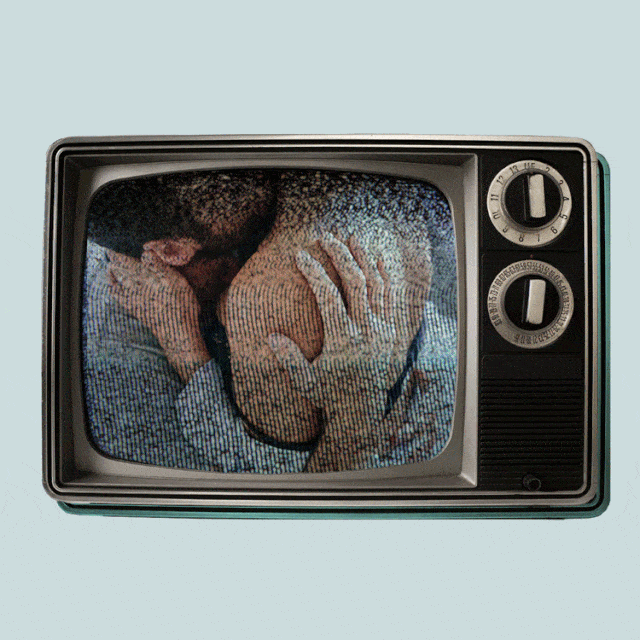 75 Real Sex Scenes in Movies
75 Real Sex Scenes in MoviesThese actors aren't faking anything.
By Mehera Bonner Last updated
-
 33 Unexpected Valentine's Day 2023 Date Ideas
33 Unexpected Valentine's Day 2023 Date IdeasA.k.a. not dinner and roses.
By The Editors Published